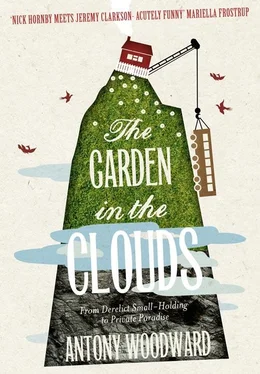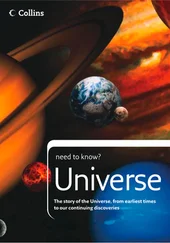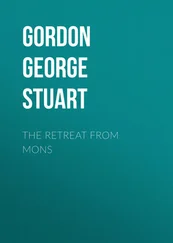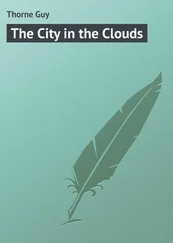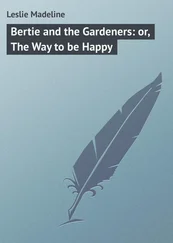The other heirloom was a picture. Before selling Rookwoods, Granny commissioned a painting of the house from a retired artist who lived nearby. The artist was Ernest Dinkel (the illustrator behind some of the classic 1930s underground posters) and he made a particularly good job of it. His watercolour, in its limed oak frame, moved with Granny to her next house. When she died it came to us, and when Jonny and I left home, it went to him, sparking a row so immense my father had a copy made for me.
I once read that in loving relationships between adults, the relationship does not start the day two people meet, but in the childhood of each partner. That’s when the template which governs adult behaviour, when it comes to love, is laid down. If that’s the case, then why shouldn’t much the same apply to our relationship with places? It’s always fascinated me that if you ask someone where, if they could have one, their secret rural hideaway would be—by a stream, say, in the woods, by the sea or in the hills—they always seem to know immediately. How can this be?
When I started trying to make my own garden, I discovered the task had actually begun years earlier, before I’d even found the place where my garden was to be, and that I was embarking on a more involved adventure than I could possibly have guessed, one in which all kinds of unexpected influences came to bear. Careful, patient assessment of the garden in my head, no doubt, might have explained some of these things, while simultaneously revealing much about myself (to make your paradise, after all, you need to know yourself). I did no such thing. Instead, I blundered on, baffled but trying to stay loyal to my instincts, following inexplicable imperatives. Only gradually did some explanations begin to dawn. The result is a book that often strays beyond the garden gate to all kinds of peripheral things, from childhood and family to wood-chopping.
My hope is that, on the off chance that others, too, have a garden in their heads alongside the one that they’re trying to make for real, my explorations will prompt them to reflect on theirs. After all, no one can deny the sheer grandeur of ambition or romantic purity of the impulse behind Britain’s greatest shared passion, to which anyone who’s ever dropped into a garden centre of a Saturday morning, hauled resentfully on a mower pull-start, or opened a packet of seeds has, however unconsciously, already succumbed.
A. W.
Tair-Ffynnon, 2010
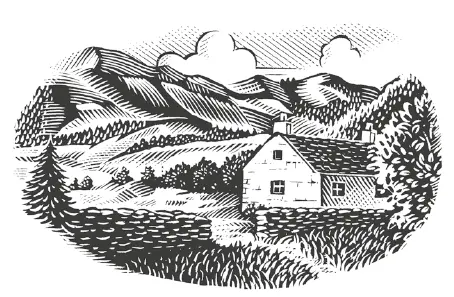
Now and then we passed through winding valleys speckled with farms that looked romantic and pretty from a distance, but bleak and comfortless up close. Mostly they were smallholdings with lots of rusted tin everywhere—tin sheds, tin hen huts, tin fences—looking rickety and weatherbattered. We were entering one of those weird zones, always a sign of remoteness from the known world, where nothing is ever thrown away. Every farmyard was cluttered with piles of cast-offs, as if the owner thought that one day he might need 132 half-rotted fence-posts, a ton of broken bricks and the shell of a 1964 Ford Zodiac.
BILL BRYSON, Notes from a Small Island , 1996
‘What d’you want that old place for? You a farmer? You don’t sound like a farmer.’
Mr. Games had the easy telephone manner of someone used to talking for a living and the cheery directness which I was beginning to associate with the Borderland brogue. It was late September and I’d been told there was nothing he didn’t know about property in the Black Mountains of South Wales. If we needed someone to bid on our behalf, then, as a pillar of one of the old established local auctioneers, valuers and land agents, no one was better for the task than Mr. Games.
‘I’m a writer.’
‘Are you, bloody hell?’
‘I was wondering, is there any chance—’
‘If you’re a writer, you’ll know Oliver Goldsmith? I was thinking of him just now.’
‘Oliver Goldsmith? No, I don’t think—’
‘ Her modest looks the cottage might adorn,/Sweet as the primrose peeps beneath the thorn;/Now lost to all; her friends, her virtue fled,/Near her betrayer’s door she lays her head,/And, pinched with cold and shrinking from the shower,/With heavy heart deplores that luckless hour. ’
‘That is lovely. No, I don’t know that poem, but—’
‘ The Deserted Village . You must know that.’
‘I must look it up. But I was wondering—?’
‘What about Keats? Adieu! adieu! thy plaintive anthem fades/Past the near meadows, over the still stream,/Up the hill-side; and now ’tis buried deep/In the next valley-glades:/Was it a vision, or a waking dream?/Fled is that music—do I wake or sleep? How do they do it? That’s the bloody question. It’s in there you know, right from the start. Thomas, d’you read much of him? “And Death Shall Have No Dominion?”’
‘I…er…’
‘ No more may gulls cry at their ears/Or waves break loud on the seashores …’
Was everyone in Border Country like this, I wondered? Everyone we met seemed to love to talk.
‘…He was nineteen. Nineteen . How can you know that stuff aged nineteen?’
‘Amazing, isn’t it? But I was wondering—’
‘So why d’you want this house anyway? It’s in the middle of bloody nowhere.’
‘That’s the point. I like—’
‘D’you read Johnston? You must’ve read him? That time at the Giant’s Causeway…’
And he was off again. Forty minutes later, with difficulty, I extricated myself (‘Got to go, have you?’)—though, as I put the phone down, I felt at least we now had a sound ally. I arranged to meet at his office the following Friday at twelve o’clock to run through the formalities before the afternoon’s auction.
The call was the culmination of a decade of dreaming followed by a three-year wild-goose chase. I’d been looking for a rural hideaway for as long as I could remember. In my mind, I knew precisely what I was after. It would be a remote, whitewashed stone cottage with a sagging roof of mossy stone slates, up a long, rocky track. Inside would be a sitting room lined with books, and battered old leather armchairs, a threadbare carpet and a blazing log fire. The place would have elements of Gavin Maxwell’s Camusfearna (his cottage on the West Coast of Scotland in Ring of Bright Water ), Uncle Monty’s Lake District retreat in the film Withnail and I , and Shackleton’s hut at the South Pole, with its tin stove pipe, cosy bunks and (yes, let us not forget) plentiful wooden packing cases of canned lobster soup and vintage claret. It had to be somewhere properly wild: mountains or moorland—walking country—where the wind howled and the rain lashed, somewhere that would be cut off for weeks by snow in winter, as an antidote to the airless, Tupperware skies of London. In this place, after long walks in the hills (wearing sturdy, red-laced boots), worries could be soaked away in deep baths while sipping whisky (not that I liked whisky) while savouring the sound of the weather hammering the windows. It seemed a straightforward enough fantasy, yet finding it had proved anything but. Scotland, Snowdonia and the Lakes were too far. The Dales and High Peak were too expensive. Exmoor wasn’t wild enough. Dartmoor wasn’t mountainous enough.
And thus my late twenties passed into my thirties, with me no nearer, mentally or financially, to finding my rural hideaway. So, my forties on the horizon, I compromised. I bought an ancient Land Rover and parked it in the street as a daily reminder that one day that’s where I was going.
Читать дальше
